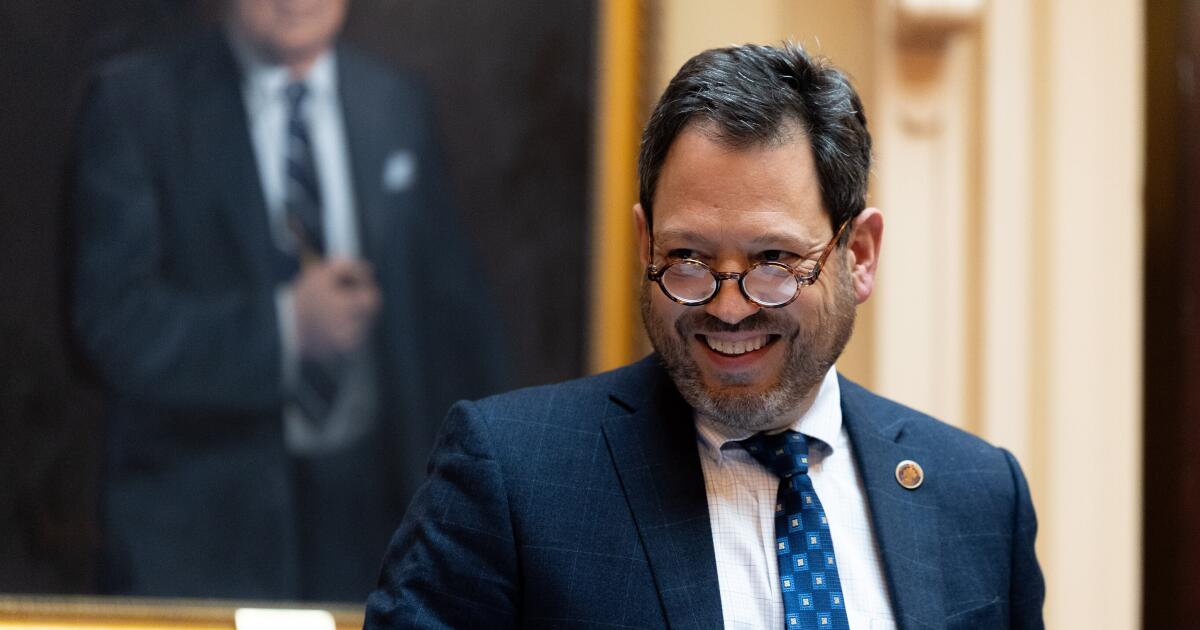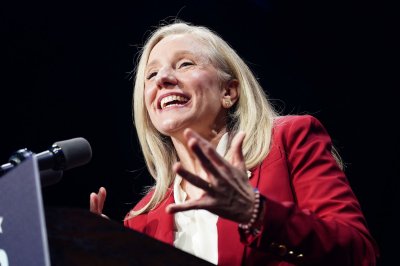Virginia Democrats pass map that could flip 4 U.S. House seats, if courts and voters approve
RICHMOND, Va. — Democrats passed a new congressional map through the Virginia legislature on Friday that aims to help their party win four more seats in the national redistricting battle. It’s a flex of state Democrats’ political power, however hurdles remain before they can benefit from friendlier U.S. House district boundaries in this year’s midterm elections.
A judge in Tazewell, a conservative area in Southwest Virginia, has effectively blocked a voter referendum on the redrawn maps from happening on April 21 by granting a temporary restraining order, issued Thursday.
Democrats are appealing that decision and another by the same judge, who ruled last month that Democrats illegally rushed the planned voter referendum on their constitutional amendment to allow the remapping. The state’s Supreme Court picked up the party’s appeal of the earlier ruling.
The judge’s order prohibits officials from preparing for the referendum through March 18. But early voting for it was slated to start March 6, meaning Democrats would have to get a favorable court ruling within two weeks to stick with that timeline.
If Democrats get to carry out a referendum, voters will choose whether to temporarily adopt new congressional districts and then return to Virginia’s standard process after the 2030 census. Democrats wanted to publish the new map ahead of the April vote.
President Trump launched an unusual mid-decade redistricting battle last year by pushing Republican officials in Texas to redraw districts to help his party win more seats. The goal was for the GOP to hold on to a narrow House majority in the face of political headwinds that typically favor the party out of power in midterms.
Instead, it created a burst of redistricting efforts nationwide. So far, Republicans believe they can win nine more House seats in Texas, Missouri, North Carolina and Ohio. Democrats think they can win six more seats in California and Utah, and are hoping to fully or partially make up the remaining three-seat margin in Virginia.
Democratic lawmakers in Virginia have sought to portray their redistricting push as a response to Trump’s overreach.
“The president of the United States, who apparently only one half of this chamber knows how to stand up to, basically directed states to grab power,” Virginia’s Democratic Senate Majority Leader Scott Surovell said in February. “To basically maintain his power indefinitely — to rig the game, rig the system.”
Republicans have sounded aghast. House Minority Leader Terry Kilgore described the remap as a way for liberals in northern Virginia’s Arlington, Fairfax and Prince William counties to commandeer the rest of the state.
“In southwest Virginia, we have this saying … They say, ‘Terry, you do a good job up there, but you know, Virginia stops at Roanoke,” Kilgore previously said, referring to how some people across Virginia’s Appalachian region feel unrepresented in state politics. “That’s not going to be the same saying anymore, because Virginia is now going to stop just a little bit west of Prince William County.”
Virginia is currently represented in the U.S. House by six Democrats and five Republicans who ran in districts imposed by a court after a bipartisan legislative commission failed to agree on a map after the 2020 census.
Legislation that would put the Democrats’ more gerrymandered map into effect if voters approve the referendum now awaits the signature of Democratic Gov. Abigail Spanberger, who has indicated that she would support it.
“Virginia has the opportunity and responsibility to be responsive in the face of efforts across the country to change maps,” Spanberger said as she approved the referendum.
Democratic candidates are already lining up in anticipation. “Dopesick” author Beth Macy and former U.S. Rep. Tom Perriello launched campaigns in red areas that would be moved into districts with more registered Democrats.
Virginia Del. Dan Helmer and former federal prosecutor J.P. Cooney, who helped investigate Trump and was fired by him, have launched campaigns in a formerly rural district that would now mostly include voters just outside the nation’s capital. And former Democratic congresswoman Elaine Luria is mounting a comeback against Republican Rep. Jen Kiggans, who ousted her in 2022, in a competitive district that the map has made slightly more favorable to Democrats.
Diaz writes for the Associated Press.






